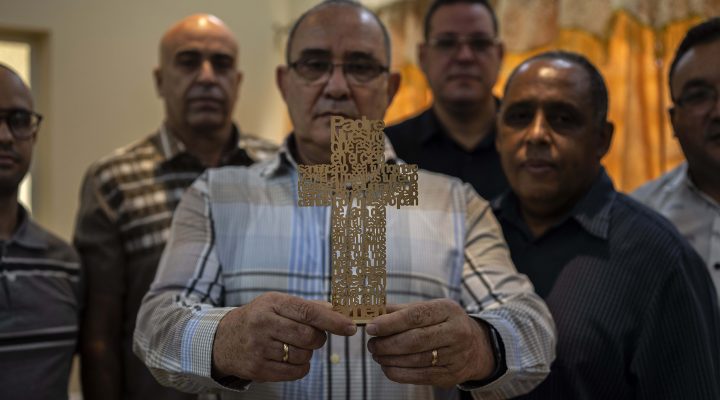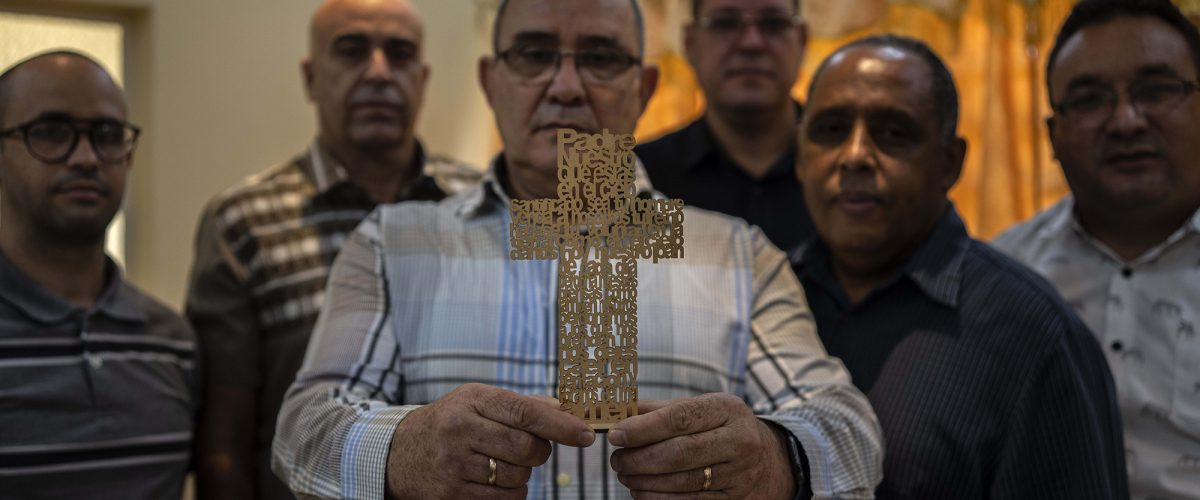The Cuban government, long hostile to all forms of religious expression, is tightening down further on communities of faith in response to ongoing economic challenges exacerbated by the COVID-19 pandemic, a religious freedom expert reported.
“They must be overwhelmed by what’s going on to also want to persecute the faith community,” Kirk Dahlgren, a consultant and former USAID senior foreign service officer, said during an Aug. 2 webinar hosted by the U.S. Commission on International Religious Freedom. The event included a panel discussion and presentation of USCIRF’s new report on constitutional reform and religious freedom in Cuba.
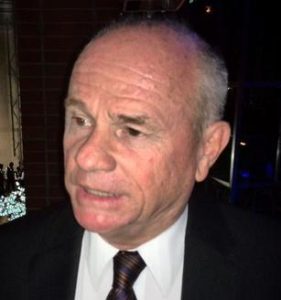
Kirk Dahlgren
“Normally, we think people who are faithful to be good citizens, but I think when it comes down to it, (Cuban leaders) feel threatened by faith leaders who all surveys show are much more respected than government officials,” Dahlgren said.
Cuban political and security leaders also view Christians, Muslims and other religious groups as the last vestiges of an independent civil society which has otherwise been banned by the Communist Party, said Dahlgren, a co-author of the USCIRF report.
Government paranoia is deepened by the knowledge that more than 70% of Cubans are affiliated with a specific religious group despite the dominance of communism since the 1959 revolution, he said. “They are just highly threatened by the independence of the faith community and the leadership and vision of the faith leaders who are there.”
The virtual event focused on deteriorating religious freedom in Cuba since its recent adoption of a new constitution and since the pandemic severely damaged its economy, which is heavily dependent on tourism and exports.
USCIRF’s report on freedom of religion or belief, including its recommendations on Cuba to the White House, Congress and Secretary of State, also were discussed by the panel.
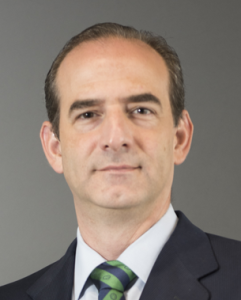
Javier Larrondo
Adopted in April 2019, Cuba’s current constitution provides fewer protections for religious freedom or belief than the previous 1976 document did, panelist and study co-author Javier Larrondo explained. “Its potential ability to protect religion from arbitrary and unlimited action by the communist party has disappeared in the new (constitution).”
Larrondo, president of Prisoners Defenders, said religious freedom is fragile in Cuba because the constitution is subordinate to party decrees and legislative actions. “The concept of constitutionality does not exist in Cuba at all. That’s why numerous laws have been enacted after the constitution severely limiting rights and despite being flagrantly contradictory to the constitution.”
An electronic survey of 56 Cuban religious leaders backed up those observations, he said. The poll, which is included in the USCIRF report, found that 37% of respondents experience repressive acts weekly or monthly, 84% have endured threats of some kind, 46% have been detained and 23% have suffered violence at the hands of the state.
Also, 86% said they “know of faith leaders who have been forced to migrate” due to freedom of religion or belief repression, “and a similar number are aware of faith leaders who are surveilled for the same reasons,” according to the report.
The study added that government-created proxy organizations are used to undermine the authority and effectiveness of religious groups and leaders. These include the Cuban Council of Churches, Pastors for Peace, the Yoruba Cultural Association, and the Islamic League of Cuba.
“Many faith leaders believe these groups are run by state officials posing as faith leaders.”
“This facade is presented to Cubans and international audiences as evidence of religious representatives in harmony with the government,” USCIRF said. “Many faith leaders believe these groups are run by state officials posing as faith leaders. Truly independent umbrella faith organizations are actively repressed.”
Crackdowns on religious groups deepened after spontaneous, non-violent protests occurred in 35 Cuban cities on July 11, 2021, the report added.
“Tens of thousands of frustrated Cubans carried placards calling for freedom and reform, and some even waved American flags. The government, caught off-guard, soon called for its pro-government supporters to ‘defend the revolution’ — code words for police, military and shadowy paramilitary forces to aggressively attack and detain the protesters.”
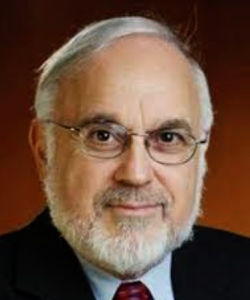
Abraham Cooper
USCIRF Vice Chair Abraham Cooper said the organization has recommended Cuba be once again placed on the State Department’s special watch list for its recent and continued severe violations of religious freedom or belief.
“During 2021, the Cuban government continued to use surveillance harassment and ad hoc interpretations of legislation to suppress religious freedom and persecute religious freedom advocates,” he said.
The Communist Party continued to interfere in the affairs of registered religious groups through intimidation and to more directly persecute unregistered organizations, which includes many evangelical churches, Cooper said. “We call on the U.S. government to impose targeted sanctions on Cuban government agencies and officials responsible for those severe violations of religious freedom.”
USCIRF also recommended the U.S. support interfaith alliances between Cuban and non-Cuban religious groups, promote the legal identity of Cuban faith organizations and lead efforts to increase knowledge about freedom of religion on the island nation.
Larrondo said there is little hope for meaningful reform in Cuba unless authorities are firmly pushed by the people and by democratic governments.
“There is no real prospect. The Cuban state is a rock. It is one rock, made of one rock. And the Communist Party is the Castro family. They control everything. They control religion. With that kind of behavior in 63 years, we don’t believe there is hope. The only hope is to press them … to make a change.”
Related articles:
How to read the Cuban street protests in light of U.S.-Cuba history | Analysis by Ken Sehested
Understanding Cuba and the United States through July 11 and Jan. 6 | Opinion by Stan Dotson
You want Patriotic Education? Look what it’s done for Cuba | Opinion by Russ Dean

